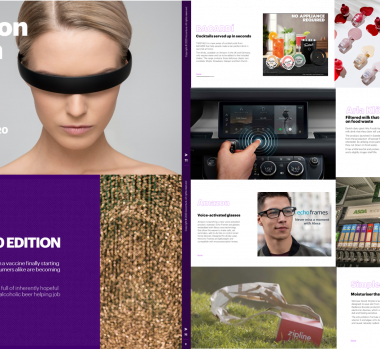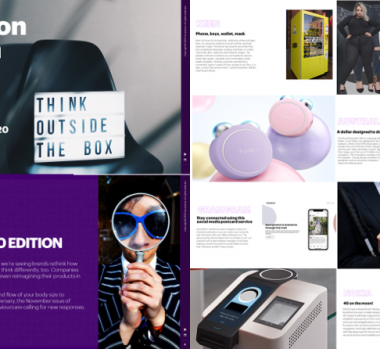Best of Both Worlds: 5 Companies With Great Post-Acquisition Culture
Done badly, they lead to dysfunctional ways of working, power struggles, and a sense of “us and them”.
So how can you get this right? In this edition of Innovation in 5, we explore 5 success stories of companies that have nailed acquiring start-ups and scale-ups, gaining more than just new customers or capabilities.
1. IKEA + TaskRabbit: Capitalizing on the future workforce
It was announced in September that IKEA is buying TaskRabbit, a 9-year-old start up which uses the gig economy to help people make home improvements. Here’s our view on some exciting opportunities:
- Getting closer to the consumer.
IKEA can use TaskRabbit’s experience in consumers’ homes to better understand their lives. This will generate deeper insight and embed a greater focus on consumer experience. - The human touch.
Whilst IKEA’s business has succeeded by being low-touch and highly efficient, TaskRabbit’s staff can act as a face for the brand and help deliver on IKEA’s mission to create a better everyday life for the many. - The right mix of scale & agility.
IKEA’s 60+ year experience combined with TaskRabbit’s nimble set up might create exactly the right blend of experience and entrepreneurialism.
2. Walmart + Jet.com: The catalyst for digitzation and e-commerce
Walmart.Com launched in 2000, but only accounted for 3% of Walmart’s total sales leading to their acquisition of Jet.com in September for $3.3 billion. Since then, Jet.com founder Marc Lore has been scrutinising its business operations and culture.
With the blessing of Walmart, Lore has called for more speed and less bureaucracy, removing certain positions and focusing on bringing energy to Walmart’s people.
Walmart has carried on boosting its digital capability- this time, buying luxury men’s fashion e-retailer Bonobos.
3. Unilever + Ben & Jerry’s: The trigger for sustainability?
When Unilever bought Ben & Jerry’s in 2000, supporters of the independent ice cream brand feared the worst: that joining a global FMCG would stifle its innovative culture, and lead to an erosion of its principles around sustainability and positive social impact.
But what happened next?
Jerry Greenfield, co-founder, has been “a little surprised at how supportive Unilever is”. Unilever even used Ben & Jerry’s mission and culture as inspiration in becoming a more responsible organisation. Its Sustainable Living Plan, launched in 2010, aims to halve the environmental impact of its products, whilst doubling sales over 10 years.
4. Microsoft + LinkedIn: More than just data
Back in 2016, Microsoft buying LinkedIn for a hefty $26.2Bn was big news. Microsoft executives saw it as an opportunity to gain immediate access to more than 433M LinkedIn members and a solid social graph.
But since then, the acquisition has proven worth its weight in gold for their company culture. Microsoft’s CEO Satya Nadella has been working hard on a company turnaround and culture transformation in the organization that PayPal founder Peter Thiel described as a “bet against technological innovation.”
Microsoft had a “lethargic, boastful, go-it-alone reputation,” whereas LinkedIn is regarded as having a dynamic, collaborative culture, with no shortage of fun and humour, which is one of its values.
5. Coca-Cola + Innocent: A new source of purpose and inspiration
When Coca-Cola announced it was taking full control of Innocent in 2013, there were concerns that Innocent’s entrepreneurial brand spirit would be diluted.
But the worst never happened: Coca-Cola’s culture has in fact been enhanced by Innocent. The soft drinks giant has been hugely influenced by Innocent’s Head of Sustainability, who now works closely with Coca-Cola’s agriculture and sourcing teams.
Bold actions on the part of Innocent, such as giving 10% of its profits to charity, have shown a different way of doing business. This has trickled down to employees, who are passionate about these elements of Coca-Cola’s work, and has reinvigorated its culture through an enhanced sense of purpose.
If you’d like to know more about our approach to culture transformation, please contact us!
Get in touch


